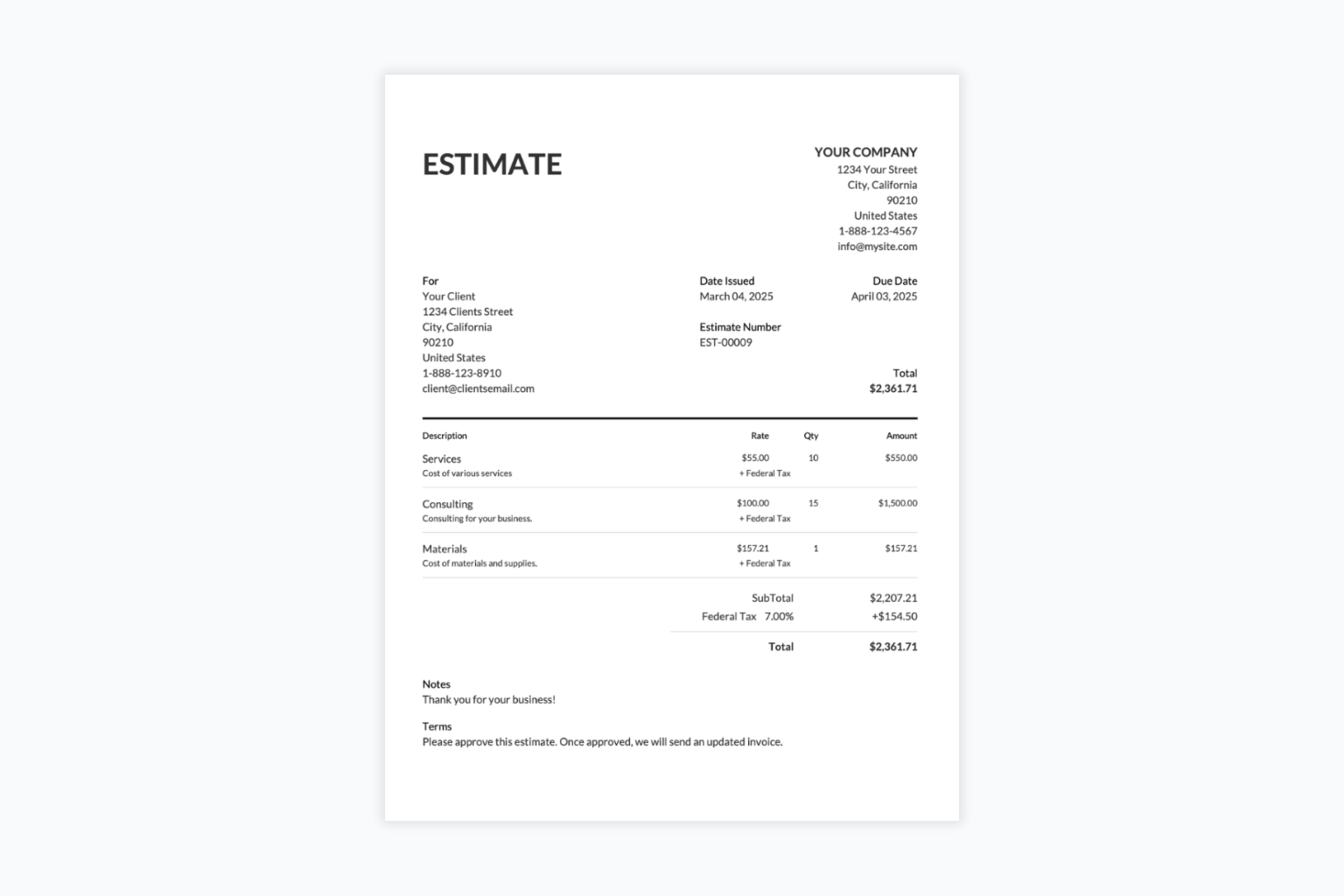





Managing a construction business means dealing with tight schedules, complex projects, subcontractors, and shifting budgets. Add invoicing and estimates to the mix, and it can get overwhelming very fast.
That's where Invoicer steps in. Built for general contractors, builders, and construction firms, it simplifies your paperwork so you can focus on building and not billing.
Construction projects require coordination, accuracy, and transparency. No matter if you're managing residential builds, commercial developments, or infrastructure projects, Invoicer helps you stay on top of estimates, payments, and project tracking using one clean, easy-to-use dashboard.
Construction projects are often large, complex, and completed in stages. Clear invoices not only help you track progress but also make sure clients understand exactly what they're paying for at each step.
A construction invoice typically lists labor, subcontractor fees, materials, equipment rentals, taxes, and any deposits already paid. Many contractors also include project milestones or reference the original contract. With Invoicer.ai, you can easily create detailed invoices that look professional and reduce the chance of disputes.
Yes. Progress billing is common in construction, especially for projects that last weeks or months. You can create milestone or percentage-based invoices that match the project's progress. This way, you maintain a consistent cash flow and your clients pay only for the work that's been completed.
Change orders happen all the time. Clients often request upgrades, adjustments, or extra work. Instead of creating confusing side documents, you can simply update your invoice with the new line items.
Yes. Invoicer.ai shows you exactly when invoices are sent, opened, and paid. If something is overdue, you' can send a late payment reminder before weeks go by. This visibility is especially useful in construction, where payment delays can affect your ability to keep projects moving.
While invoices and contracts are separate, it's best practice to make sure your invoices reference the contract or agreement.
Yes. Many contractors require deposits before starting work.
That depends on the project. For larger jobs, itemized invoices with labor, materials, and subcontractor costs build trust and make it easier for clients to see the value of the work. For smaller projects, a simple lump-sum invoice may be all that's needed.
Hundreds of construction professionals use Invoicer to simplify their workflow, speed up payments, and stay organized without adding extra admin work.







